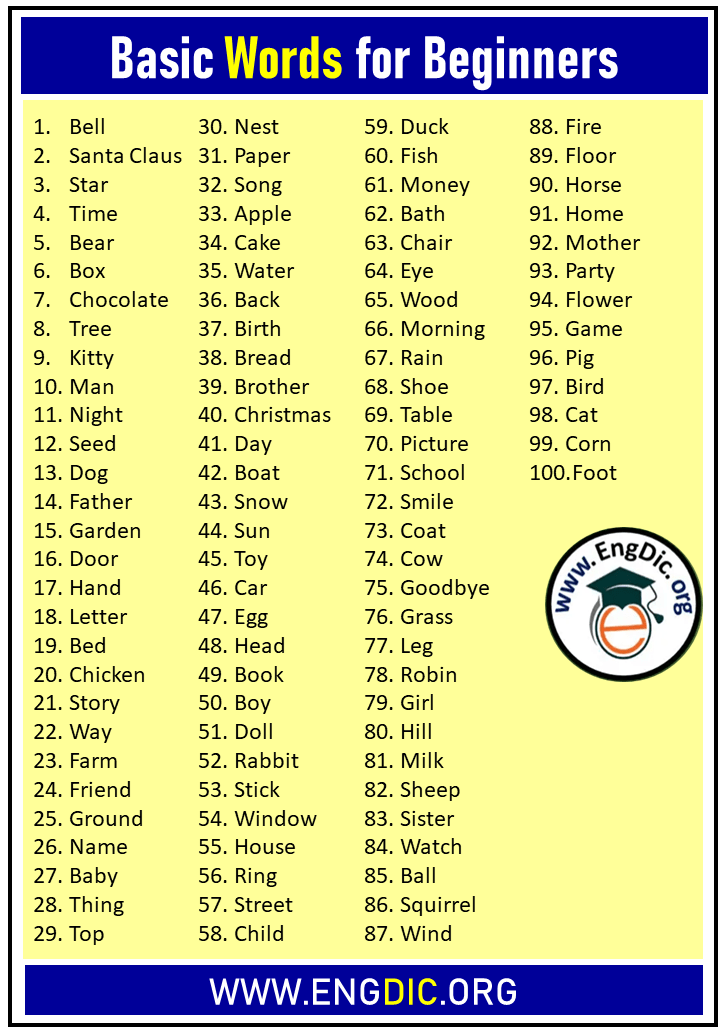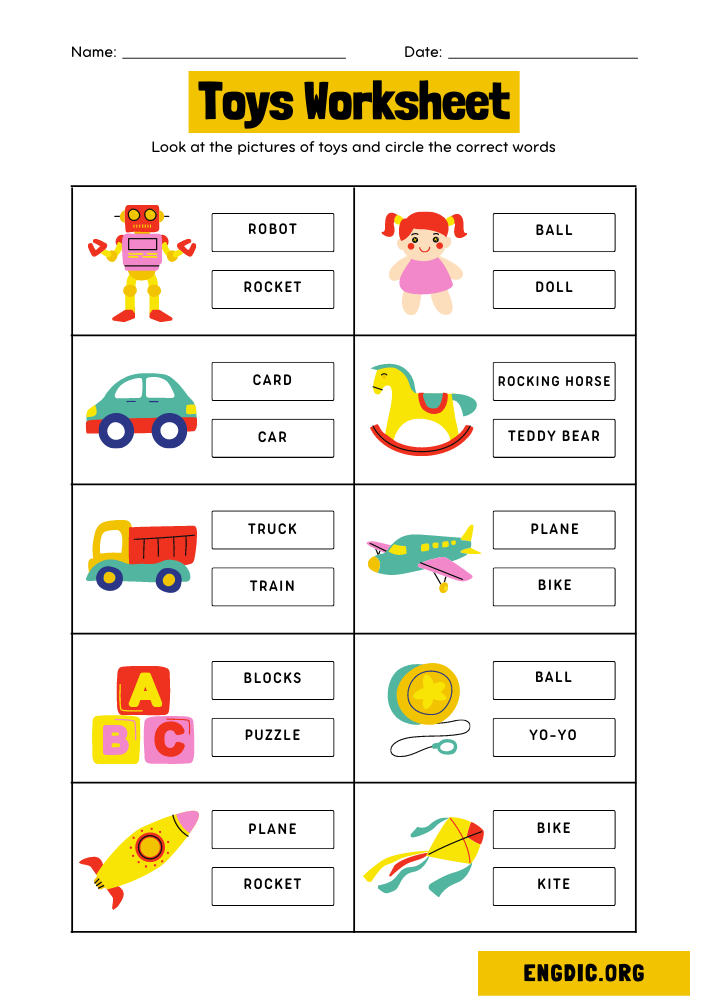Listen 🔉 Read 🔎 Repeat 🔁
| be | 🙂 | Be happy. |
| have | 🖐️ | Have a good day. |
| do | 💪 | Do the work. |
| say | 🗨️ | Say, “Hello.” |
| get | 🛠️ | Get to work. |
| make | 👩🍳 | Make some food. |
| go | 🛵 | Go for a drive. |
| know | 🎓 | I know a lot. |
| take | 🎫 | Take a number. |
| see | 👓 | I can see. |
| come | 🧲 | Come to me. |
| think | 🤔 | I think so. |
| look | 👀 | Look at that. |
| want | 😋 | I want to eat. |
| give | 🎁 | Give me a gift. |
| use | 🍴 | Use a fork. |
| find | 🔍 | Find the answer. |
| tell | 🎤 | Tell your story. |
| ask | 🙋 | Ask a question. |
| work | 🔨 | I work hard. |
| seem | 🤔 | You seem lost. |
| feel | 🤗 | I feel happy. |
| try | 😣 | Try again. |
| leave | 🚶♂️ | I will leave. |
| call | 📱 | Call me. |
Listen 🔉 Read 🔎 Repeat 🔁
| person | 😃 | This person is happy. |
| man | 👨 | The man is nice. |
| woman | 👩 | The woman is young. |
| child | 🧒 | The child is small. |
| time | ⏰ | The time is 7am. |
| year | 🎉 | The year is 2019. |
| week | 📅 | A week is 7 days. |
| day | 📆 | This is a good day. |
| way | 🛣️ | Come this way. |
| thing | ❔ | What is that thing? |
| world | 🌎 | The world is big. |
| life | ⚕️ | Life is good. |
| hand | ✋ | My hand is clean. |
| part | 🧩 | I like this part. |
| eye | 👁️ | My eye is open. |
| place | 🗺️ | This is the place. |
| work | 🔨 | My work is important. |
| case | 📁 | USCIS case number |
| point | 📌 | I see your point. |
| government | 🏛️ | I like the government. |
| company | 🏭 | Her company is new. |
| number | 🔢 | This is my number. |
| group | 👨👩👦 | The group is big. |
| problem | 🤦 | I have a problem. |
| fact | 📚 | That is a fact. |
Listen 🔉 Read 🔎 Repeat 🔁
| good | 👍 | Good work. |
| new | 🌅 | It is a new day. |
| first | 🥇 | This is my first job. |
| last | 🤷 | That was last time. |
| long | ✈️ | It was a long way. |
| great | 👷♀️ | She is a great boss. |
| little | 🚗 | I have a little car. |
| own | 🏠 | I want my own home. |
| other | 🏨 | I like the other place. |
| old | 🏚️ | It is an old house. |
| right | 📲 | This is the right number. |
| big | 👪 | It was a big group. |
| high | 🔢 | It is a high number. |
| different | ⌚ | I have a different time. |
| small | 🌎 | It is a small world. |
| large | 🏬 | That is a large place. |
| next | 📅 | That is next week. |
| early | 🤤 | I like early lunch. |
| young | 🧒 | He is a young child. |
| important | 👩✈️ | She is an important person. |
| few | 🗓️ | Give me a few days. |
| public | 🏞️ | It is a public place. |
| bad | 😥 | You have a bad problem. |
| same | ⏲️ | Come at the same time. |
| able | 🧰 | I am able to work. |
Listen 🔉 Read 🔎 Repeat 🔁
| to | Go to work |
| of | a lot of people |
| in | Get in place |
| for | Come for the day |
| on | Be on time |
| with | Stay with my child |
| at | Good at work |
| by | Wait by the car |
| from | I am from New York |
| up | Go up to the place |
| about | Tell me about life |
| into | Come into work soon |
| over | Go over there next week |
| after | Call me after work |
Listen 🔉 Read 🔎 Repeat 🔁
| the | the child |
| and | man and woman |
| a | a day |
| that | that place |
| I | I like you |
| it | It is nice. |
| not | Not my place |
| he | He is nice. |
| as | as a child |
| you | You are nice |
| this | This is the place |
| but | But not today |
| his | His car |
| they | They are here |
| her | Her mother |
| she | She is nice |
| or | Yes or no |
| an | an eye for an eye |
| will | I will call you |
| my | My first job. |
| one | One at a time |
| all | All the same |
| would | I would like that |
| there | There is a place to stay |
| their | Their home is nice |
Это базовый английский, в основе которого лежит всего 850 слов. Этого запаса будет достаточно новичку, чтобы изъясняться на языке. Проверьте себя! Хорошее начало для быстрого старта в английском.
Basic English был придуман британским лингвистом
Чарльзом Огденом. В 1925 году он разработал British American Scientific International Commercial English (аббревиатура — BASIC). Это 850 слов, обозначающих предметы, направления и действия.
1. Предметы и явления (600 слов)
200 слов в картинках
Картинки посмотрите в википедии —
200 базовых английских слов в картинках.
A:
|
angle — угол, поворачивать; ant — муравей; apple — яблоко; |
arch — арка, дуга, выгибать; arm — рука, вооружать; army — армия |
B:
|
bag — сумка ball — мяч bank — банк basin — бассейн basket — корзина bath — ванна, купаться bed — кровать bee — пчела bell — колокольчик berry — ягода |
bird — птица blade — лезвие board — доска boat — лодка, судно bone — кость book — книга boot — ботинок, загружать bottle — бутылка box — коробка boy — мальчик |
brain — мозг brake — тормоз, тормозить branch — ветвь, отделение brick — кирпич bridge — мост brush — щётка, кисть bucket — ведро, черпать bulb — луковица, выпирать button — кнопка, застёгивать baby — ребёнок, младенец |
C:
|
cake — пирог camera — камера card — карта, чесать cart — везти carriage — вагон cat — кот chain — цепь, сеть cheese — сыр |
chest — грудь, сундук chin — подбородок church — церковь circle — круг clock — часы cloud — облако coat — пальто, покрывать collar — воротник, хватать |
comb — расчёсывать cord — шнур, связывать cow — корова cup — чашка curtain — занавес, штора, занавешивать cushion — подушка, смягчать |
D:
|
dog — собака door — дверь |
drain — утечка, истощать drawer — ящик |
dress — платье, одевать drop — капля, опускать |
E:
|
ear — ухо egg — яйцо |
engine — двигатель eye — глаз |
F:
|
face — лицо farm — ферма feather — перо, украшать finger — палец |
fish — рыба flag — флаг, сигнализировать floor — пол, этаж, дно fly — муха, лететь |
foot — нога fork — вилка fowl — домашняя птица frame — структура, рамка, создавать |
G:
|
garden — сад girl — девочка glove — перчатка |
goat — коза gun — оружие |
H:
|
hair — волосы hammer — молоток hand — рука hat — шляпа |
head — голова heart — сердце hook — крюк, вербовать horn — рожок |
horse — лошадь hospital — больница house — дом |
I:
J:
jewel — драгоценный камень
K:
|
kettle — чайник key — ключ |
knee — колено knife — нож |
knot — узел |
L:
|
leaf — лист, покрывать листвой leg — нога |
library — библиотека line — линия, очередь, выравнивать |
lip — губа lock — замок |
M:
|
map — карта match — спичка, сделки, соответствовать |
monkey — обезьяна moon — луна |
mouth — рот, жевать muscle — мускул |
N:
|
nail — ноготь neck — шея, обниматься needle — игла |
nerve — нерв net — чистый, сеть |
nose — нос nut — орех |
O:
| office — офис | orange — апельсин, оранжевый | oven — духовка, печь |
P:
|
parcel — пакет, распределять pen — ручка pencil — карандаш picture — картина pig — свинья |
pin — булавка, прикреплять pipe — труба plane — самолёт plate — пластина plow — плуг, пахать |
pocket — карман, присваивать pot — горшок potato — картофель prison — тюрьма pump — насос, качать |
R:
|
rail — рельс, перевозить поездом rat — крыса receipt — квитанция |
ring — кольцо, звонить rod — прут |
roof — крыша root — корень |
S:
|
sail — парус school — школа scissors — ножницы screw — винт seed — семя sheep — овцы shelf — полка ship — корабль shirt — рубашка shoe — ботинок |
skin — кожа, очищать skirt — юбка snake — змея sock — носок spade — лопата sponge — губка spoon — ложка spring — весна square — квадрат stamp — печать, марка, отпечатывать |
star — звезда station — станция stem — стебель, происходить stick — палка, прикреплять stocking — снабжать stomach — живот, смелость, переваривать store — магазин, запас street — улица sun — солнце |
T:
|
table — стол tail — хвост, выслеживать thread — нить, пронизывать throat — горло thumb — листать, большой палец |
ticket — билет toe — палец ноги tongue — язык tooth — зуб town — город |
train — поезд tray — поднос tree — дерево trousers — брюки |
U:
W:
|
wall — стена watch — часы wheel — колесо, вертеть |
whip — кнут, хлестать whistle — свист, свистеть window — окно |
wing — крыло wire — провод worm — червь |
400 общих слов
A:
|
account — счет, считать act — действия addition — дополнение adjust — регулировать, приспосабливать advertisement — реклама agreement — соглашение air — воздух, проветривать |
amount — количество, означать, составлять amusement — развлечение animal — животное answer — ответ, отвечать apparatus — аппарат approval — одобрение argument — спор, аргумент |
art — искусство, художественный attack — нападение, нападать attempt — попытка, пытаться attention — внимание attraction — достопримечательности authority — власть, полномочие |
B:
|
back — назад, спина, отступать balance — баланс, уравновешивать base — основной behavior — поведение belief — вера birth — рождение bit — частица, бит |
bite — укус, кусать blood — кровь blow — удар, дуть body — тело brass — медь, руководство bread — хлеб breath — дыхание |
brother — брат building — здание, строение burn — ожог, гореть burst — взрыв, взрывать business — бизнес, деловой butter — масло |
C:
|
canvas — холст care — забота, лечение cause — причина, вызывать chalk — мел, рисовать мелом chance — шанс, случайный, рисковать change — изменение, замена cloth — ткань, одежда coal — уголь color — цвет comfort — комфорт committee — комитет |
company — компания comparison — сравнение competition — соревнование condition — условие, обуславливать connection — связь control — контроль cook — готовить copper — медь copy — копия cork — пробка cotton — хлопок |
cough — кашель country — страна cover — покрытие, покрывать, обложка crack — первоклассный, взламывать credit — кредит, верить crime — преступление crush — давка, сокрушать cry — плакать current — текущий, поток curve — кривая, избегать |
D:
|
damage — повреждение, повреждать danger — опасность daughter — дочь day — день death — смерть debt — долг decision — решение degree — уровень, градус, степень design — намереваться desire — желание, желать |
destruction — разрушение detail — детализировать, детали development — развитие digestion — вываривание direction — управление discovery — открытие discussion — обсуждение disease — болезнь disgust — отвращение |
distance — дистанция distribution — распределение division — подразделение doubt — сомнение drink — пить, напиток driving — вождение dust — чистить, пыль |
E:
|
earth — земля edge — продвигаться, край education — образование effect — производить, эффект end — заканчивать, конец |
error — ошибка event — случай, событие example — пример exchange — обмен, обменивать existence — существование |
expansion — расширение experience — опыт, испытывать expert — опытный, эксперт |
F:
|
fact — факт fall — падение, осень family — семья father — папа fear — бояться, страх feeling — чувство fiction — беллетристика, фикция |
field — область, поле, выставлять fight — борьба, бороться fire -огонь flame — пылать, пламя flight — полет, рейс flower — цветок fold — сгиб, сворачивать |
food — еда, продовольствие force — сила, вынуждать, вызывать form — форма friend — друг front — выходить, фронт, передний fruit — фрукт |
G:
|
glass — стекло, стакан gold — золото government — государство |
grain — зерно grass — трава grip — власть, захват, захватывать |
group — группа growth — рост guide — гид, справочник, путеводитель |
H:
|
harbor — приютить, питать, вставать на якорь, гавань harmony — гармония hate — ненавидеть, очень не хотеть, ненависть hearing — слушание, слух |
heat — нагревать, высокая температура help — помощь, помогать history — история hole — продырявливать, отверстие |
hope — надежда, надеяться hour — час humor — юмор |
I:
|
ice — лёд idea — идея impulse — импульс increase — увеличивать, увеличение |
industry — индустрия ink — чернила insect — насекомое instrument — инструмент |
insurance — страховка interest — интерес, процент, доля invention — изобретение iron — утюг, гладить |
J:
|
jelly — превращать в желе, желе join — присоединяться, объединение, соединение |
journey — путешествовать, поездка judge — судья, судить |
jump — прыгать, прыжок |
K:
| kick — удар, ударить | kiss — поцелуй, целовать | knowledge — знание |
L:
|
land — земля language — язык laugh — смеяться, смех law — законный, закон lead — принуждать, побеждать, вести, лидерство learning — изучение, обучение |
leather — кожа letter — письмо level — уровень, выравнивать, направлять lift — поднимать, лифт light — освещать, легкий, свет limit — ограничивать |
linen — льняной, полотно liquid — жидкий, жидкость list — список, перечислять loss — потеря love — любовь |
M:
|
machine — машина man — человек mark — марка market — рынок mass — масса meal — еда measure — мера, измерять meat — мясо meeting — встреча |
memory — память metal — металл middle — средний, середина milk — молоко mind — ум, возражать mine — мой, месторождение, мина minute — минута mist — туман money — деньги |
month — месяц morning — утро mother — мать motion — двигаться, движение, жест mountain — гора, горный move — двигать, шаг, движение music — музыка |
N:
|
name — имя nation — нация need — потребность, требоваться |
news — новости night — ночь noise — шум |
note — примечание, отмечать number — число, номер |
O:
|
observation — наблюдение offer — предложение, предлагать oil — масло |
operation — операция, действие opinion — мнение order — заказ, заказывать, приказывать |
organization — организация ornament — украшение, украшать owner — владелец |
P:
|
page — страница pain — боль, причинять боль paint — краска, рисовать, красить paper — бумага part — часть, отделять, разделяться paste — приклеивать, паста payment — оплата peace — мир person — персона place — размещать, помещать, занимать место, место plant — завод, растение, прививать, сеять |
play — играть pleasure — удовольствие point — пункт, точка, указывать poison — яд, отравлять polish — полировать porter — швейцар,носильщик position — помещать, позиция powder — порошок power — сила, власть price — цена print — печатать |
process — обрабатывать, процесс produce — продукт, производить profit — прибыль, получать прибыль property — свойства prose — проза protest — возражать, протест pull — напряжение, тянуть punishment — наказание purpose — намереваться, цель push — толчок, подталкивать |
Q:
| quality — качество, качественный | question — вопрос |
R:
|
rain — дождь range — диапазон, располагаться rate — норма,разряд ray — луч reaction — реакция reading — чтение reason — рассуждать, причина, разум record — рекордный, отчёт, делать запись regret — сожаление, сожалеть |
relation — отношение religion — религия representative — представитель request — запрос, просить respect — уважение, уважать rest — отдых, отдыхать, оставаться reward — награда, вознаграждать rhythm — ритм rice — рис |
river — река road — дорога roll — рулон, ведомость, катиться, въезжать room — комната rub — протирать, тереться rule — правило run — бег, бегать |
S:
|
salt — соль, солить sand — песок scale — измерять, масштаб science — наука sea — море seat — сиденье, усаживать, место secretary — секретарь selection — выбор self — сам sense — чувство, значения, смысл, ощущать servant — слуга sex — секс, пол shade — оттенок,тень, заштриховывать shake — встряска, встряхивать, дрожать, потрясать shame — позор, позорить shock — шок, потрясать side — сторона, примыкать sign — знак, признак, подписывать silk — шёлк silver — серебро |
sister — сестра size — размер sky — небо sleep — спать slip — промах, бланк, подсовывать, скользить slope — наклон, клониться smash — удар, разбиваться smell — запах, пахнуть smile — улыбка, улыбаться smoke — дым, курить sneeze — чиханье, чихать snow — снег soap — мыло, мылить society — общество son — сын song — песня sort — вид, сортировать sound — звук soup — суп space — пространство, космос |
stage — стадия, сцена, организовывать start — начинать statement — утверждение steam — пар, париться, двигаться steel — сталь step — шаг, шагать stitch — стежок, сшивать stone — камень stop — останавливаться, остановка story — история stretch — отрезки, протягивать, простираться structure — структура substance — вещество, сущность sugar — сахар suggestion — предложение, предположение summer — лето support — поддержка, поддерживать surprise — сюрприз swim — плаванье, плавать system — система |
T:
|
talk — разговор, говорить taste — вкус, испытывать tax — налог, облагать налогом teaching — обучение tendency — тенденция test — проверять, тест theory — теория |
thing — вещь thought — мысль thunder — гром, греметь time — время tin — олово,консервная банка top — возглавлять, вершина, главный touch — прикосновение, касаться |
trade — торговля, обменивать transport — транспорт, транспортировать trick — уловка, обманывать trouble — проблема, беспокоить turn — поворот, поворачивать twist — завихрение, крутить |
U:
| unit — единица | use — использование, использовать |
V:
|
value — ценность, оценивать verse — стих |
vessel — судно, сосуд view — вид, взгляд, рассматривать |
voice — голос, высказывать |
W:
|
war — война wash — мытьё, стирать, чистить waste — ненужный, отходы, трата water — вода wave — волна wax — воск, натирать воском weather — погода |
week — неделя weight — вес, нагружать wind — ветер wine — вино winter — зима, зимовать woman — женщина wood — лес |
wool — шерсть word — слово work — работа, работать wound — проветривать, рана, ранить writing — письмо |
Y:
2. Действия или движения (100 слов)
|
come — приходить, приезжать get — получать, заставлять give — давать go — ходить, идти keep — продолжать, держать, оставлять, не допускать let — позволять make — делать/сделать, заставлять put — помещать seem — казаться, представляться take — брать/взять be — быть do — делать have — иметь, съесть, знать say — говорить see — видеть send — посылать may — мочь will — быть хотеть about — о across — через after — после against — против among — среди at — в before — перед between — между by — к, в соответствии с, за, на down — вниз from — из in — в off — прочь, от on — на over — по through — через |
to — к, до, в under — под up — вверх with — с as — поскольку, как for — для of — из, о, от till — пока, до than — чем a — любой, один, каждый, некий the all — все, весь any — любой, никто every — каждый no — никакой, нет other — другой some — некоторый, немного such — такой, таким образом that — что this — это, этот i — я he — он you — ты, вы who — кто and — и because — потому что but — а, но or — или if — если though — хотя while — в то время как how — как when — когда where — где, куда, откуда |
why — почему again — снова ever — когда-либо, никогда far — самый дальний forward — отправлять, вперед here — здесь, сюда near — рядом, около now — теперь, сейчас out — вне, снаружи still — все еще then — тогда there — там, туда together — вместе well — хорошо, намного almost — почти enough — достаточно even — еще, даже little — маленький much — много not — не only — только quite — весьма so — так very — очень tomorrow — завтра yesterday — вчера north — север south — юг east — восток west — запад please — пожалуйста yes — да |
3. Выражение качества
Общие (100 слов)
A:
| able — способный, быть в состоянии | acid — кислота, кислый | angry — сердитый |
B:
|
beautiful — красивый black — чёрный |
boiling — кипение bright — яркий, умный |
broken — сломанный brown — коричневый |
C:
|
cheap — дешёвый chemical — химикат chief — главный |
clean — чистый, чистить clear — ясный, очищать, оправдываться common — общий |
complex — комплекс conscious — сознательный cut — резать |
D:
| deep — глубокий, глубоко | dependent — зависимый |
E:
| early — рано, ранний | elastic — эластичный | equal — равный, равняться |
F:
|
fat — толстый, жир fertile — плодородный first — первый |
fixed — неподвижный, неизменный flat — плоский, квартира, плоскость free — свобода, бесплатный |
frequent — частый, часто посещать full — полный |
G:
|
general — общий, генерал good — хороший |
great — великий, великолепный grey|gray — серый |
H:
|
hanging — вывешивание, висение happy — счастье |
hard — трудный, тяжёлый, твёрдый healthy — здоровый |
high — высокий, высоко hollow — пустота |
I:
J:
jewel — драгоценный камень
K:
L:
| like — подобный, любить, нравиться | living — проживаниe | long — долго, длинный |
M:
|
male — мужской, мужчина married — женатый, замужем |
material — материал medical — медицинский |
military — военный |
N:
|
natural — натуральный necessary — необходимый |
new — новый normal — нормальный |
O:
open — открытый, открывать
P:
|
parallel — параллельный, находить что-либо подобное past — мимо, прошлый physical — физический |
political — политический poor — бедный, плохой, слабый possible — возможный |
present — существующий, подарок private — личный, приватный probable — вероятный |
Q:
quick — быстрый
quiet — тихий, успокаивать
R:
|
ready — готовый, готов read — читать |
regular — регулярный responsible — ответственный |
right — верный, право round — вокруг, круглый, раунд |
S:
|
same — то же самое second — секунда, второй separate — отдельный, отделять serious — серьёзный |
sharp — острый smooth — гладкий, мягкий, приглаживать sticky — липкий stiff — жесткий |
straight — прямой strong — сильный sudden — внезапный sweet — сладкий |
T:
|
tall — высокий thick — толстый, густой |
tight — трудный tired — усталый |
true — правда, правдивый |
V:
violent — сильный, жестокий
W:
|
waiting — ожидание warm — теплый, нагревать |
wet — влажный wide — широкий |
wise — мудрый |
Y:
yellow — жёлтый
young — молодой
Противоположные (50 слов)
A:
| awake — активный, пробуждать, просыпаться |
B:
|
bad — плохой bent — склонность, сгибать |
bitter — горький, ожесточенный blue — синий |
C:
|
certain — уверенный, определенный cold — холодный |
complete — полный, заканчивать cruel — жестокий |
D:
|
dark — темнота, темный dead — мёртвый dear — дорогой |
delicate — тонкий, деликатный different — различный, другой dirty — грязный |
dry — сухой, сушить |
F:
|
false — фальшивый feeble — слабый |
female — женский foolish — глупый |
future — будущий, будущее |
G:
I:
L:
|
last — последний, длиться late — опаздывать |
left — лево, левый loose — свободный, освобождать |
loud — громкий low — низкий |
M:
N:
O:
|
old — старый opposite — напротив, противоположный |
P:
R:
S:
|
sad — расстроенный safe — безопасный secret — секретный short — короткий |
simple — простой slow — медленный small — маленький soft — мягкий |
solid — твёрдый, солидный special — специальный strange — странный |
T:
| thin — худой, тонкий, жидкий |
W:
|
white — белый wrong — неправильный, несправедливость |
- Что включает в себя словарный запас на уровне Elementary?
- Глаголы уровня А1
- Список имен существительных уровня Beginner
- Список слов по теме «Окружающий мир»
- Слова уровня А1 на тему «Семья»
- Английские слова на тему «Социальная коммуникация»
- Слова General Basic Words для туриста начального уровня
- Прилагательные уровня Elementary
- Список важных наречий базового уровня
- Техники увеличения словарного запаса
- Техника «Комментатор»
- Техника «Домашний актёр»
- Техника «Радужный текст»
- В качестве заключения
Чем больше слов знает человек, тем интереснее и осмысленнее его речь. Даже начальный уровень английского, усиленный достаточным словарным запасом, позволит вам чувствовать себя уверенно в любой ситуации, которая может возникнуть в другой стране. Лексика – это отличный инструмент, с помощью которого можно донести свою точку зрения, обратиться за помощью, решить проблему. Давайте разберёмся с английскими словами уровня А1.
Что включает в себя словарный запас на уровне Elementary?
Активный лексический запас на этом этапе включает до 1000 слов и состоит из таких употребляемых частей речи:
- глаголов (verbs),
- имен существительных (nouns),
- прилагательных (adjectives),
- местоимений (pronouns),
- числительных (numerals),
- наречий (adverbs).
В английском предложение строится на основании глагола в правильном времени. Они выражают действия (Olga drinks juice – Ольга пьет сок) и состояния (Denis seems very happy – Денис кажется очень счастливым). Глаголы, в отличие от других частей речи, меняются в зависимости от времени и рода подлежащего.
Не стоит волноваться, если на первый взгляд все перечисленные слова окажутся незнакомыми. Наверняка, вы не раз слышали их в песнях, рекламе или крылатых выражениях. Подобранные в этой статье частицы речи полезны тем, что вы можете сразу же начинать их использовать. Это наиболее легкие и часто применимые English words.
Глаголы уровня А1
Для того, чтобы иметь возможность общаться с англоязычными людьми и понимать в общих чертах их беглую речь – необходимо выучить список главных глаголов английского языка. После того, как вы запомните хотя бы половину нижеперечисленного материала – вы можете начинать общаться с не носителями: индейцами, китайцами, французами, арабами, испанцами. Смысл разговоров в невозможности перейти на русский и в применении простейших слов в бытовых беседах с живыми людьми.
| Глагол | Транскрипция | Перевод |
|---|---|---|
| To be | [tə biː] | Быть |
| To do | [du] | Делать |
| To feel | [fiːl] | Чувствовать |
| To see | [siː] | Видеть |
| To hear | [hɪər] | Слышать |
| To run | [rʌn] | Бежать |
| To get | [ɡet] | Получать |
| To make | [meɪk] | Сделать |
| To cook | [kʊk] | Готовить |
| To sing | [sɪŋ] | Петь |
| To speak | [spiːk] | Разговаривать |
| To say | [seɪ] | Говорить |
| To tell | [tel] | Рассказывать |
| To take | [teɪk] | Брать |
| To sit | [sɪt] | Садиться |
| To stand | [stænd] | Стоять |
| To laugh | [lɑːf] | Смеяться |
| To smile | [smaɪl] | Улыбаться |
| To open | [ˈəʊpən] | Открывать |
| To close | [kləʊz] | Закрывать |
| To love | [lʌv] | Любить |
| To like | [laɪk] | Нравиться |
| To give | [ɡɪv] | Давать |
| To bring | [brɪŋ] | Приносить |
| To breath | [breθ] | Дышать |
| To buy | [baɪ] | Покупать |
| To sell | [sel] | Продавать |
| To forget | [fəˈɡet] | Забывать |
| To believe | [bɪˈliːv] | Верить |
| To have | [həv] | Иметь |
| To go | [ɡəʊ] | Идти |
| To know | [nəʊ] | Знать |
| To think | [θɪŋk] | Думать |
| To come | [kʌm] | Приходить |
| To want | [wɒnt] | Хотеть |
| To use | [juːz] | Использовать |
| To find | [faɪnd] | Находить |
| To work | [wɜːk] | Работать |
| To eat | [iːt] | Есть |
| To drink | [drɪŋk] | Пить |
| To write | [raɪt] | Писать |
| To read | [riːd] | Читать |
| To call | [kɔːl] | Звонить |
| To try | [traɪ] | Пытаться |
| To need | [niːd] | Нуждаться |
| To become | [bɪˈkʌm] | Становиться |
| To put | [pʊt] | Класть |
| To leave | [liːv] | Оставлять |
| To pay | [peɪ] | Платить |
| To play | [pleɪ] | Играть |
| To pray | [preɪ] | Молиться |
| To stay | [steɪ] | Оставаться |
| To mean | [miːn] | Означать |
| To keep | [kiːp] | Держать, хранить |
| To let | [let] | Оставлять |
| To begin | [bɪˈɡɪn] | Начинать |
| To start | [stɑːt] | Стартовать |
| To finish | [ˈfɪnɪʃ] | Заканчивать |
| To help | [help] | Помогать |
| To show | [ʃəʊ] | Показывать |
| To cry | [kraɪ] | Плакать |
| To move | [muːv] | Двигаться |
| To jump | [dʒʌmp] | Прыгать |
| To live | [lɪv] | Жить |
| To die | [daɪ] | Умирать |
| To happen | [ˈhæpən] | Случаться |
| To lose | [luːz] | Проигрывать |
| To hate | [heɪt] | Ненавидеть |
| To include | [ɪnˈkluːd] | Включать в себя |
| To turn on | [tɜːn ɒn] | Включать (о приборе) |
| To turn off | [tɜːn ɒf] | Выключать |
| To continue | [kənˈtɪnjuː] | Продолжать |
| To change | [tʃeɪndʒ] | Менять |
| To wash | [wɒʃ] | Мыть |
| To clean | [kliːn] | Убирать, очищать |
| To lead | [liːd] | Вести |
| To understand | [ˌʌndəˈstænd] | Понимать |
| To watch | [wɒtʃ] | Смотреть |
| To discover | [dɪˈskʌvə(r)] | Исследовать |
| To imagine | [ɪˈmædʒɪn] | Представлять |
| To introduce | [ˌɪntrəˈdjuːs] | Представить |
| To follow | [ˈfɒləʊ] | Следовать |
| To create | [kriˈeɪt] | Создавать |
| To grow | [ɡrəʊ] | Расти |
| To spend | [spend] | Тратить |
| To win | [wɪn] | Выигрывать |
| To offer | [ˈɒfə(r)] | Предлагать |
| To learn | [lɜːn] | Изучать |
| To appear | [əˈpɪə(r)] | Появляться |
| To disappear | [ˌdɪsəˈpɪə(r)] | Исчезать |
| To build | [bɪld] | Строить |
| To break | [breɪk] | Ломать |
| To send | [send] | Посылать |
| To fall | [fɔːl] | Падать |
| To cut | [kʌt] | Резать |
| To achieve | [əˈtʃiːv] | Достигать |
| To communicate | [kəˈmjuːnɪkeɪt] | Общаться |
| To kill | [kɪl] | Убивать |
| To pass | [pɑːs] | Проходить |
| To fly | [flaɪ] | Летать |
| To swim | [swɪm] | Плавать |
| To decide | [dɪˈsaɪd] | Решать |
| To return | [rɪˈtɜːn] | Возвращаться |
| To hope | [həʊp] | Надеяться |
| To explain | [ɪkˈspleɪn] | Объяснять |
| To propose | [prəˈpəʊz] | Предлагать |
| To develop | [dɪˈveləp] | Развивать |
| To support | [səˈpɔːt] | Поддерживать |
| To dance | [dɑːns] | Танцевать |
| To draw | [drɔː] | Рисовать |
| To book | [bʊk] | Бронировать |
| To be afraid | [bi əˈfreɪd] | Бояться |
| To agree | [əˈɡriː] | Соглашаться |
| To check up | [tʃek ʌp] | Проверять |
| To delete | [dɪˈliːt] | Удалять |
| To choose | [tʃuːz] | Выбирать |
| To catch | [kætʃ] | Ловить |
| To ask | [ɑːsk] | Спрашивать |
| To answer | [ˈɑːnsə(r)] | Отвечать |
| To hesitate | [ˈhezɪteɪt] | Cомневаться |
Мы рекомендуем изучать эту базу в самом начале. Как можно эффективно выучить их в правильном контексте? Надо выбрать простой текст, прочитать его, подчеркнуть найденные глаголы и попробовать самостоятельно составить с ними несколько десятков предложений.
Очень здорово помогает в запоминании подборки слов по смыслу. Вы можете самостоятельно сформировать наборы, отталкиваясь от ваших ассоциаций. Например, набор «Любопытный Лис» может состоять из таких близких по сути глаголов: to ask, to discover, to learn, to check up, to think. Еще можно выделить группу «Злобный Волк»: to kill, to cut, to hate, to break или «Очаровательный Зайка»: to love, to dance, to communicate, to smile, to laugh.
Если придумывать эмоциональные названия, то учиться будет интереснее и легче. Конечно же, вы можете составлять подборки и по сфере использования, например «Отношения», «Работа», «Конфликт». Здесь нет правил – важен только ваш результат.
Также вы можете использовать ваш индивидуальный формат запоминания: картинки, мемы, аудиоверсии, видеоролик или текст.
Список имен существительных уровня Beginner
Конечно же, одних глаголов мало, чтобы выразить свою точку зрения. Давайте рассмотрим несколько списков с базовой лексикой А1.
Освоив эти подборки, вы можете тренироваться и составлять примитивные рассказы. На этом этапе идеально подойдут языковые приложения и кроссворды. Можно также играть в развивающие игры для малышей на английском.
Список слов по теме «Окружающий мир»
| Существительное | Транскрипция | Перевод |
|---|---|---|
| air | [ən eə(r)] | Воздух |
| wind | [wɪnd] | Ветер |
| water | [ˈwɔːtə(r)] | Вода |
| west | [west] | Запад |
| east | [iːst] | Восток |
| north | [nɔːθ] | Север |
| south | [saʊθ] | Юг |
| tree | [triː] | Дерево |
| sea | [siː] | Море |
| ocean | [ˈəʊʃn] | Океан |
| rock | [rɒk] | Скала |
| plant | [plɑːnt] | Растение |
| flower | [ˈflaʊə(r)] | Цветок |
| forest | [ˈfɒrɪst] | Лес |
| person | [ˈpɜːsn] | Личность |
| night | [naɪt] | Ночь |
| morning | [ˈmɔːnɪŋ] | Утро |
| day | [deɪ] | День |
| evening | [ˈiːvnɪŋ] | Вечер |
| life | [laɪf] | Жизнь |
| mountain | [ˈmaʊntən] | Гора |
| land | [lænd] | Земля |
| house | [haʊs] | Дом |
| fire | [ˈfaɪə(r)] | Огонь |
| country | [ˈkʌntri] | Страна |
| animal | [ˈænɪml] | Животное |
| bird | [bɜːd] | Птица |
| fish | [fɪʃ] | Рыба |
| insect | [ˈɪnsekt] | Насекомое |
| city | [ˈsɪti] | Город |
| world | [wɜːld] | Мир |
Мы советуем вам подписаться на аккаунты известных людей: Twitter Илона Маска, в котором инженер оставляет колкие твиты с ярким сленгом. Молодежный язык полезен тем, что содержит огромное количество простых слов, которые, тем не менее, могут здорово разнообразить вашу речь:
- Yeet! — Есть! — Используется вместо классического Yes!
- Pretty sus — очень подозрительно.
- Obnoxion – облом, отстой.
Не запрещается зарегистрироваться в Tik Tok – вдруг это окажется вашим самым успешным учебным форматом.
Слова уровня А1 на тему «Семья»
Этот набор нужен тем, кто ещё не умеет рассказывать о себе и своих близких. Однако, чтобы найти друзей и вызывать доверие – очень важно уметь рассказывать о семье и родных.
Обязательно составьте развернутый легкий рассказ про каждого члена семьи или просто подберите под каждое слово ваши ассоциации с вашей семьей. Любые действия с новыми словами помогут вам зафиксировать их в памяти. Поэтому вы можете рисовать, делать схемки, смайлики, записывать голосовые сообщения с вашим вариантом предложения – важна любая осознанная умственная деятельность.
| Существительное | Перевод | Транскрипция |
|---|---|---|
| boy | Мальчик | [bɔɪ] |
| girl | Девочка | [ɡɜːl] |
| mother | Мама | [ˈmʌðə(r)] |
| father | Отец | [ˈfɑːðə(r)] |
| son | Сын | [sʌn] |
| daughter | Дочь | [ˈdɔːtə(r)] |
| baby | Малыш | [ˈbeɪbi] |
| family | Семья | [ˈfæməli] |
| grand mother | Бабушка | [ɡrænd ˈməT͟Hər] |
| grand father | Дедушка | [ɡrænd ˈfɑːðə(r)] |
| children | Дети | [ˈtʃɪl.drən] |
| home | Дом | [həʊm] |
| love | Любовь | [lʌv] |
| apartment | Квартира | [əˈpɑːtmənt] |
| joy | Радость | [dʒɔɪ] |
| nephew | Племянник | [ˈnefjuː] |
| aunt | Тетя | [ɑːnt] |
| uncle | Дядя | [ˈʌŋkl] |
| cousin | Двоюродная сестра или брат | [ˈkʌzn] |
| man | Мужчина | [mæn] |
| woman | Женщина | [ˈwʊmən] |
| child | Ребенок | [tʃaɪld] |
| sister | Сестра | [ˈsɪstə(r)] |
| brother | Брат | [ˈbrʌðə(r)] |
| Relatives | Родственники | [ˈrel.ə.tɪv] |
| friend | Друг | [frend] |
| wife | Жена | [waɪf] |
| husband | Муж | [ˈhʌzbənd] |
| address | Адрес | [əˈdres] |
| happiness | Счастье | [ˈhæp.i.nəs] |
| People | Люди | [ˈpiːpl] |
Для того, чтобы материал усвоился – его необходимо постоянно использовать. Важно не только понимать значение, но и обстоятельства применения. Поэтому, как только вы узнали что-то новое – применяйте на практике: пишите письма друзьям, оставляйте комментарии в социальных сетях, придумывайте посты или сторис с новыми словами. В обучении действует всё, что вам нравится и что получается.
Создайте собственный тред в канале Telegram или в блоге «Как я стал англичанином, не зная ни одного слова» и записывайте каждый день несколько новостей, предложений или шуток.
Классная штука – юморной Twitter, куда можно заносить несколько веселых фраз с новым словом. Кстати, это может помочь вам с продвижением личного бренда и с отслеживанием собственного прогресса. Любая креативность будет только в плюс.
В деле с иностранным языком цель – научиться на нем выражаться грамотно и понятно, а способы достижения этой цели могут разными: от комиксов до сочинения песенок.
Английские слова на тему «Социальная коммуникация»
Если вы планируете общаться на специальных сайтах с англоязычной молодежью, то эти слова вам очень пригодятся.
| Существительное | Транскрипция | Перевод |
|---|---|---|
| phone | [fəʊn] | Телефон |
| question | [ˈkwestʃən] | Вопрос |
| place | [pleɪs] | Место |
| market | [ˈmɑːkɪt] | Рынок |
| order | [ˈɔːdə(r)] | Заказ |
| food | [fuːd] | Еда |
| work | [wɜːk] | Работа |
| communication | [kəˌmjuːnɪˈkeɪʃn] | Общение |
| story | [ˈstɔːri] | История |
| relax | [rɪˈlæks] | Отдых |
| time | [taɪm] | Время |
| word | [wɜːd] | Слово |
| dialogue | [ˈdaɪ.ə.lɒɡ] | Диалог |
| meeting | [ˈmiːtɪŋ] | Встреча |
| week | [wiːk] | Неделя |
| distance | [ˈdɪstəns] | Дистанция |
| club | [klʌb] | Клуб |
| theatre | [ˈθɪətə(r)] | Театр |
| cinema | [ˈsɪnəmə] | Кинотеатр |
| coffee shop | [ˈkɒfi ʃɒp] | Кофейня |
| friendship | [ˈfrendʃɪp] | Дружба |
| behavior | [bɪˈheɪ.vjər] | Поведение |
| attitude | [ˈætɪtjuːd] | Отношение |
| student | [ˈstjuːdnt] | Студент |
| university | [ˌjuːnɪˈvɜːsəti] | Университет |
| union | [ˈjuːniən] | Объединение |
| party | [ˈpɑːti] | Вечеринка |
| date | [deɪt] | Свидание |
| sweetheart | [ˈswiːt.hɑːt] | Партнер, возлюбленный |
| leisure time | [ˈleʒ.ər taɪm] | Досуг |
Слова General Basic Words для туриста начального уровня
Этот список важно читать и изучать всем тем, кто планирует переезд с минимальным знанием языка. Это самые важные слова для туриста с уровнем А1.
| Существительное | Транскрипция | Перевод |
|---|---|---|
| road | [rəʊd] | Дорога |
| ticket | [ˈtɪkɪt] | Билет |
| map | [mæp] | Карта |
| motel | [məʊˈtel] | Мотель |
| highway | [ˈhaɪweɪ] | Шоссе |
| reception | [rɪˈsepʃn] | Регистратура, ресепшн |
| wallet | [ˈwɒlɪt] | Бумажник |
| bank | [bæŋk] | Банк |
| subway | [ˈsʌb.weɪ] | Метро |
| cab | [kæb] | Такси |
| parking | [ˈpɑː.kɪŋ] | Парковка |
| food order | [fuːd ˈɔːdə(r)] | Заказ еды |
| cash | [kæʃ] | Наличные |
| passport | [ˈpɑːspɔːt] | Паспорт |
| permission | [pəˈmɪʃn] | Разрешение |
| lawyer | [ˈlɔːjə(r)] | Адвокат |
| problem | [ˈprɒbləm] | Проблема |
| waiting room | [weɪtin: ruːm] | Зал ожидания |
| transfer | [trænsˈfɜː(r)] | Пересадка |
| bag | [bæɡ] | Сумка |
| suitcase | [ˈsuːtkeɪs] | Чемодан |
| property | [ˈprɒpəti] | Имущество |
| law | [lɔː] | Право, закон |
| police station | [pəˈliːs ˈsteɪʃn] | Полицейский участок |
| price | [praɪs] | Стоимость, цена |
| price list | [praɪs lɪst] | Ценник |
| courier | [ˈkʊr.i.ər] | Курьер |
| delivery | [dɪˈlɪvəri] | Доставка |
| location | [ləʊˈkeɪʃn] | Местоположение |
| route | [ruːt] | Маршрут |
| agreement | [əˈɡriːmənt] | Договор |
| hospital | [ˈhɒspɪtl] | Больница |
| ambulance | [ˈæmbjələns] | Скорая помощь |
Комбинируйте лексику между собой и получайте актуальные варианты для диалогов и общения.
Прилагательные уровня Elementary
Прилагательные необходимы для характеристики предмета, человека, ситуации или действия. Без них невозможно донести законченную мысль и быть до конца понятым. Мы рекомендуем миксовать все единицы речи из нашего материала в коротких отрезках текста, связанных по смыслу.
| Прилагательное | Транскрипция | Перевод |
|---|---|---|
| Afraid | [əˈfreɪd] | Напуганный |
| Angry | [ˈæŋɡri] | Сердитый |
| Asleep | [əˈsliːp] | Спящий |
| Attentive | [əˈten.tɪv] | Внимательный |
| Available | [əˈveɪləbl] | Доступный |
| Basic | [ˈbeɪsɪk] | Базовый |
| Beautiful | [ˈbjuːtɪfl] | Красивый |
| Big | [bɪɡ] | Большой |
| Brave | [breɪv] | Смелый |
| Busy | [ˈbɪzi] | Занятой |
| Calm | [kɑːm] | Спокойный |
| Careful | [ˈkeəfl] | Внимательный, заботливый |
| Cheap | [tʃiːp] | Дешевый |
| Clean | [kliːn] | Чистый |
| Clever | [ˈklevə(r)] | Умный |
| Cold | [kəʊld] | Холодный |
| Comfortable | [ˈkʌmftəbl] | Комфортный |
| Confident | [ˈkɒnfɪdənt] | Уверенный |
| Constant | [ˈkɒnstənt] | Постоянный |
| Curious | [ˈkjʊəriəs] | Любопытный |
| Dangerous | [ˈdeɪndʒərəs] | Опасный |
| Dark | [dɑːk] | Темный |
| Deep | [diːp] | Глубокий |
| Different | [ˈdɪfrənt] | Разный |
| Difficult | [ˈdɪfɪkəlt] | Трудный |
| Dirty | [ˈdɜːti] | Грязный |
| Easy | [ˈiːzi] | Легкий |
| Every | [ˈevri] | Каждый |
| Expensive | [ɪkˈspensɪv] | Дорогой |
| Exact | [ɪɡˈzækt] | Точный |
| Fast | [fɑːst] | Быстрый |
| Fair | [feə(r)] | Честный, светлый |
| Fine | [faɪn] | Замечательный |
| Foreign | [ˈfɒrən] | Иностранный |
| Free | [friː] | Свободный |
| Fresh | [freʃ] | Свежий |
| Full | [fʊl] | Полный |
| Funny | [ˈfʌni] | Забавный |
| Guilty | [ˈɡɪlti] | Виновный |
| Healthy | [ˈhelθi] | Здоровый |
| Hard | [hɑːd] | Тяжелый |
| Helpful | [ˈhelpfl] | Полезный |
| Honest | [ˈɒnɪst] | Честный |
| Hot | [hɒt] | Горячий |
| Hungry | [ˈhʌŋɡri] | Голодный |
| Important | [ɪmˈpɔːtnt] | Важный |
| Illegal | [ɪˈliːɡl] | Нелегальный, незаконный |
| Impossible | [ɪmˈpɒsəbl] | Невозможный |
| Independent | [ˌɪndɪˈpendənt] | Независимый |
| Interesting | [ˈɪntrəstɪŋ] | Интересный |
| Kind | [kaɪnd] | Добрый |
| Legal | [ˈliːɡl] | Законный |
| Little | [ˈlɪtl] | Маленький |
| Lucky | [ˈlʌki] | Удачливый |
| Necessary | [ˈnesəsəri] | Необходимый |
| Normal | [ˈnɔːml] | Нормальный |
| Old | [əʊld] | Старый |
| Opposite | [ˈɒpəzɪt] | Противоположный |
| Perfect | [pəˈfekt] | Идеальный |
| Poor | [pɔː(r)] | Бедный |
| Powerful | [ˈpaʊəfl] | Мощный |
| Possible | [ˈpɒsəbl] | Возможный |
| Quiet | [ˈkwaɪət] | Тихий |
| Rare | [reə(r)] | Редкий |
| Recent | [ˈriːsnt] | Недавний |
| Relevant | [ˈreləvənt] | Релевантный, актуальный |
| Remote | [rɪˈməʊt] | Удаленный |
| Safe | [seɪf] | Безопасный |
| Short | [ʃɔːt] | Короткий |
| Small | [smɔːl] | Маленький |
| Strange | [streɪndʒ] | Странный, незнакомый, чужой |
| Successful | [səkˈsesfl] | Успешный |
| Tasty | [ˈteɪ.sti] | Вкусный, приятный |
| Terrible | [ˈterəbl] | Жуткий |
| Tired | [ˈtaɪəd] | Усталый |
| Warm | [wɔːm] | Теплый |
| Weak | [wiːk] | Слабый |
| Responsible | [rɪˈspɒnsəbl] | Ответственный, надежный |
| Sad | [sæd] | Грустный |
| International | [ˌɪntəˈnæʃnəl] | Международный |
Список важных наречий базового уровня
Английские наречия – самостоятельная часть речи, которая обозначает признак действия и обстоятельства, при которых действие происходит. Оно отвечает на вопросы: как? каким образом? где? почему? Наречия очень украшают речь. Стоит обязательно ознакомиться и запомнить эти слова, чтобы ваш разговор стал красочнее, живее и понятнее.
| Наречие | Транскрипция | Перевод |
|---|---|---|
| Together | [təˈɡeðə(r)] | Вместе |
| According | [əˈkɔːdɪŋ] | В соответствии |
| Again | [əˈɡen] | Снова |
| Always | [ˈɔːlweɪz] | Всегда |
| Beautifully | [ˈbjuːtɪfli] | Красиво |
| Carefully | [ˈkeə.fəl.i] | Осторожно |
| Correctly | [kəˈrektli] | Верно, правильно |
| Especially | [ɪˈspeʃəli] | Особенно |
| Friendly | [ˈfrendli] | Дружелюбно |
| Indeed | [ɪnˈdiːd] | Действительно |
| Above | [əˈbʌv] | Выше |
| Accidentally | [ˌæk.sɪˈden.təl.i] | Случайно |
| Actually | [ˈæktʃuəli] | На самом деле |
| Badly | [ˈbædli] | Плохо |
| Besides | [bɪˈsaɪdz] | Помимо этого |
| Briefly | [ˈbriːfli] | Кратко |
| Certainly | [ˈsɜːtnli] | Конечно |
| Daily | [ˈdeɪli] | Ежедневно |
| Dreamily | [ˈdriː.mɪ.li] | Мечтательно |
| Even | [ˈiːvn] | Даже |
| Eventually | [ɪˈventʃuəli] | В конце концов |
| Foolishly | [ˈfuːlɪʃli] | Глупо |
| Forward | [ˈfɔːwəd] | Вперед |
| Ever | [ˈevə(r)] | Когда-либо |
| Equally | [ˈiːkwəli] | Одинаково |
| Fortunately | [ˈfɔː.tʃən.ət.li] | К счастью |
| Honestly | [ˈɒnɪstli] | Честно |
| Instead | [ɪnˈsted] | Вместо |
| Inside | [ˌɪnˈsaɪd] | Внутри |
| Also | [ˈɔːlsəʊ] | Также |
| Hardly | [ˈhɑːdli] | С трудом |
| Lately | [ˈleɪt.li] | Недавно |
| Less | [les] | Меньше |
| Loudly | [ˈlaʊd.li] | Громко, шумно |
| Nearly | [ˈnɪəli] | Около |
| Never | [ˈnevə(r)] | Никогда |
| Only | [ˈəʊnli] | Только |
| Once | [wʌns] | Один раз |
| Often | [ˈɒfn] | Часто |
| Perhaps | [pəˈhæps] | Возможно |
| Quickly | [ˈkwɪkli] | Быстро |
| Probably | [ˈprɒbəbli] | Вероятно |
| Rarely | [ˈreəli] | Редко |
| Really | [ˈriːəli] | Действительно |
| Sometimes | [ˈsʌmtaɪmz] | Иногда |
| Yesterday | [ˈjestədeɪ] | Вчера |
| Thus | [ðʌs] | Таким образом |
| Somehow | [ˈsʌmhaʊ] | Как-то |
| Soon | [suːn] | Скоро |
| Regularly | [ˈreɡjələli] | Регулярно |
| Somewhere | [ˈsʌmweə(r)] | Где-то |
Техники увеличения словарного запаса
Есть несколько забавных и оригинальных приёмов, чтобы расширить свой активный словарик.
Техника «Комментатор»
Называйте все предметы, действия, характеристики вещей на английском, когда что-то делаете дома. Например, наводите порядок, готовите, складываете одежду. Называйте знакомые вам слова на улице, в магазине, в кино, на выставке. Если нет возможности говорить вслух или вы стесняетесь – заведите блокнот, в котором можно в конце дня писать все слова, которые вам встречались за день. Такие упражнения позволят вам тренироваться каждый день, соотносить слово и его образ, запоминать часто встречающую лексику.
Техника «Домашний актёр»
Выберите любой фильм, сериал или мультик и выключите звук. А дальше попробуйте произносить слова и реплики вместо главных героев на экране. Эта забавная техника повеселит вас от души и постепенно уберет страх устной речи. Поначалу вы будете говорить односложно, затем вы втянетесь в процесс и будете использовать фразы из 5 и более структурных единиц. Очень здорово, если вы будете подбирать лексику под тематику фильма и пытаться отразить сюжет.
Техника «Радужный текст»
Нужен адаптированный художественный текст минимальной сложности, в котором вы выделяете зеленым маркером те слова, которые точно знаете, желтым – в которых сомневаетесь и красным – незнакомые. Затем текст надо несколько раз прочитать вслух, перевести, а потом по памяти назвать зеленые, желтые и красные слова. Зачастую в процессе человек интуитивно догадывается, что означают непонятные слова, а многократное произнесение вслух способствует запоминаю контекста.
В качестве заключения
При работе со словарным запасом очень важно выбрать подходящий словарь. В современных изданиях каждое слово отмечено специальным знаком – A1, A2, B1 и так далее, что означает, кем оно слово чаще всего используется. Самым оптимальным вариантом будет использование официальных источников, например: Oxford Dictionaries, Macmillan Dictionary.
Самое важное в совершенствовании языка – не переживать, что вы знаете недостаточно. Поставьте себе цель – несколько новых слов в день, и через год вы удивитесь, как же хорошо вы разбираетесь в языке.
100 Basic English Words For Beginners! If you’re just starting to learn English, you need to begin with the basics. Memorizing 100 basic English words will give you a great foundation on which to build. And once you know these words, you can start using them in simple conversations. Here’s a list of 100 essential English words for beginners. Start learning them today and you’ll be well on your way to becoming a fluent English speaker!
Table of Contents
Basic English Words For Beginners
- Bell
- Santa Claus
- Star
- Time
- Bear
- Box
- Chocolate
- Tree
- Kitty
- Man
- Night
- Seed
- Dog
- Father
- Garden
- Door
- Hand
- Letter
- Bed
- Chicken
- Story
- Way
- Farm
- Friend
- Ground
- Name
- Baby
- Thing
- Top
- Nest
- Paper
- Song
- Apple
- Cake
- Water
- Back
- Birth
- Bread
- Brother
- Christmas
- Day
- Boat
- Snow
- Sun
- Toy
- Car
- Egg
- Head
- Book
- Boy
- Doll
- Rabbit
- Stick
- Window
- House
- Ring
- Street
- Child
- Duck
- Fish
- Money
- Bath
- Chair
- Eye
- Wood
- Morning
- Rain
- Shoe
- Table
- Picture
- School
- Smile
- Coat
- Cow
- Goodbye
- Grass
- Leg
- Robin
- Girl
- Hill
- Milk
- Sheep
- Sister
- Watch
- Ball
- Squirrel
- Wind
- Fire
- Floor
- Horse
- Home
- Mother
- Party
- Flower
- Game
- Pig
- Bird
- Cat
- Corn
- Foot
Basic English Words for Beginners and Example Sentences
- Answer: She answered the question correctly.
- Ask: He asked if I wanted to join him.
- Call: I called my friend to ask for help.
- Change: I need to change my mind about something.
- Close: He closed his eyes in order to relax.
- Find: He found his way back home in the dark.
- Follow: Follow your dreams and never give up!
- Give: Can you give me a hand with this?
- Help: Can you help me with this project?
- Include: The package includes free shipping!
- Listen: Listen carefully to what I have to say.
- Live: I want to live an adventurous life!
- Look: Let’s look at all our options before deciding.
- Make: She made a delicious dinner for us.
- Move: The dog moved quickly across the field.
- Need: You need to plan ahead for success.
- Open: She opened the door and stepped inside.
- Play: The children were playing in the park.
- Point: I pointed to the correct answer on the board.
- Read: He reads a lot of books every month.
- Say: What did he say when you asked him?
- Share: Let’s share our ideas with each other.
- Show: He showed us his collection of coins.
- Speak: She spoke softly to her little brother.
- Start: It’s time to start a new chapter in life!
- Stop: Stop and think before you make a decision.
- Take: I took a deep breath before speaking.
- Talk: Can we talk about this another time?
- Think: I need to think before making my decision.
- Try: She tried her best to finish the race.
- Understand: Do you understand what I’m saying?
- Use: We can use this tool to fix the problem.
- Wait: We need to wait for the right moment.
- Walk: We should walk instead of taking the car.
- Work: He always works hard for what he wants.
- Write: She wrote her thoughts down in her journal.
- Believe: I believe in the power of positive thinking.
- Bring: Please bring me a glass of water.
- Choose: Choose your words carefully before speaking.
- Come: Come over here and have a seat.
- Carry: She carried her backpack on her back.
- Drive: He drives to work every morning.
- Eat: I like to eat a healthy breakfast every day.
- Feel: How do you feel about this situation?
- Go: Let’s go for a walk in the park!
- Hold: He holds the world record for running a mile.
Basic English Words for Beginners with Pictures
School Words for Beginners
| 1. Teacher |  |
| 2. Student |  |
| 3. Eraser | 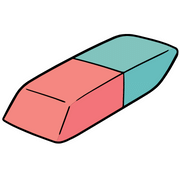 |
| 4. Pen | 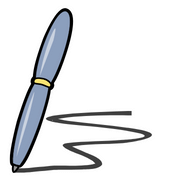 |
| 5. Book |  |
| 6. Desk |  |
| 7. Pencil | 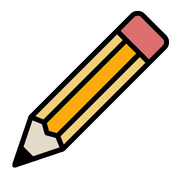 |
| 8. Chair | 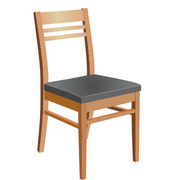 |
| 9. Bag | 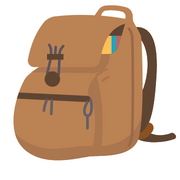 |
| 10. Whiteboard | 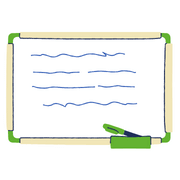 |
Animals Words for Beginners
| 1. Cat |  |
| 2. Dog |  |
| 3. Horse | 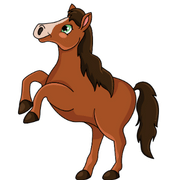 |
| 4. Pig | 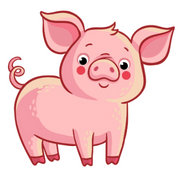 |
| 5. Sheep | 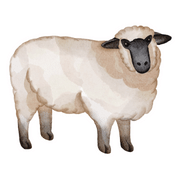 |
| 6. Cow | 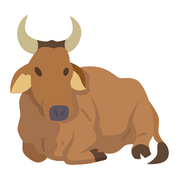 |
| 7. Duck | 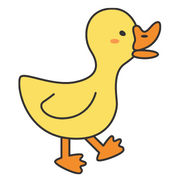 |
| 8. Lion | 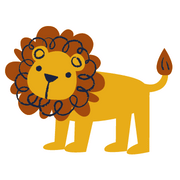 |
| 9. Elephant | 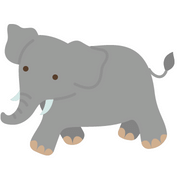 |
| 10. Tiger | 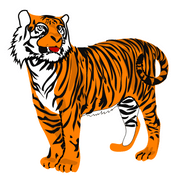 |
Fruits Words for Beginners
| 1. Apple |  |
| 2. Banana |  |
| 3. Orange |  |
| 4. Watermelon | 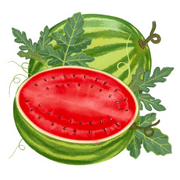 |
| 5. Grape | 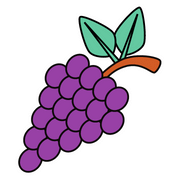 |
| 6. Strawberry | 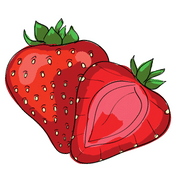 |
| 7. Pineapple | 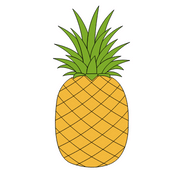 |
| 8. Mango |  |
| 9. Cherry | 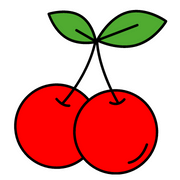 |
| 10. Lemon | 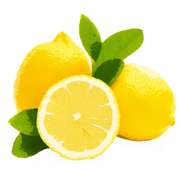 |
Colors Words for Beginners
| 1. Red |  |
| 2. Blue |  |
| 3. Green |  |
| 4. Yellow |  |
| 5. Cyan |  |
| 6. Purple |  |
| 7. Orange | 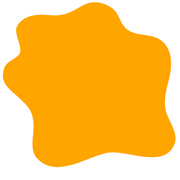 |
| 8. Brown |  |
| 9. Pink |  |
| 10. Black |  |
Transportation Words for Beginners
| 1. Plane |  |
| 2. Car | 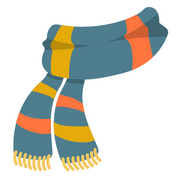 |
| 3. Train | 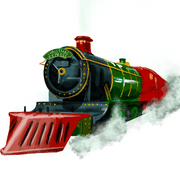 |
| 4. Bus |  |
| 5. Boat |  |
| 6. Bicycle | 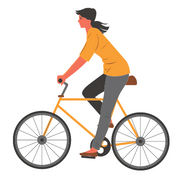 |
| 7. Helicopter | 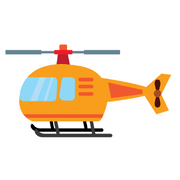 |
| 8. Motorcycle | 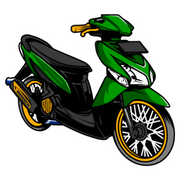 |
| 9. Subway | 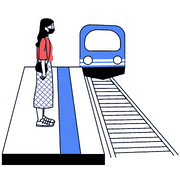 |
| 10. Taxi | 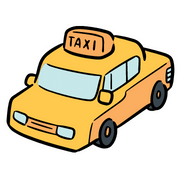 |
Kitchen Words for Beginners
| 1. Plate |  |
| 2. Bowl |  |
| 3. Spatula | 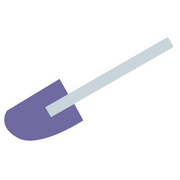 |
| 4. Knife | 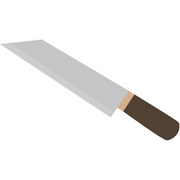 |
| 5. Fork | 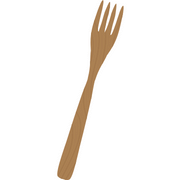 |
| 6. Spoon | 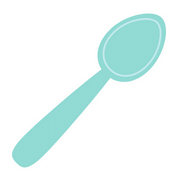 |
| 7. Chopping board | 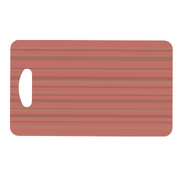 |
| 8. Refrigerator | 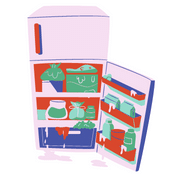 |
| 9. Oven | 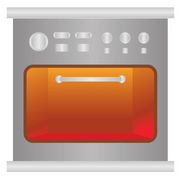 |
| 10. Stove | 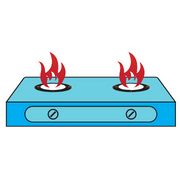 |
Vegetable Words for Beginners
| 1. Potato | 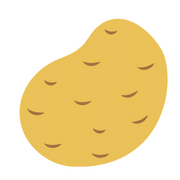 |
| 2. Carrot | 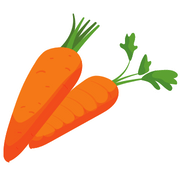 |
| 3. Onion | 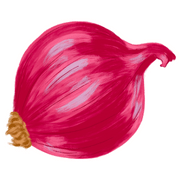 |
| 4. Broccoli |  |
| 5. Cauliflower | 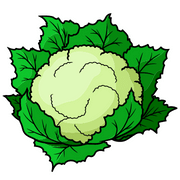 |
| 6. Spinach | 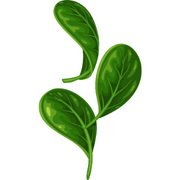 |
| 7. Cucumber | 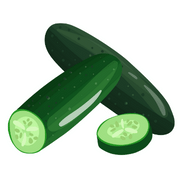 |
| 8. Tomato | 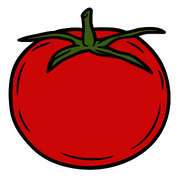 |
| 9. Garlic | 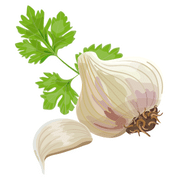 |
| 10. Peas | 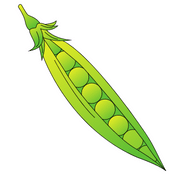 |
Shopping Words for Beginners
| 1. Cashier |  |
| 2. Customer |  |
| 3. Cart | 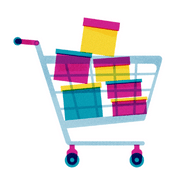 |
| 4. Bill |  |
| 5. Shop | 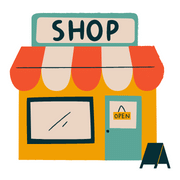 |
| 6. Store |  |
| 7. Mall | 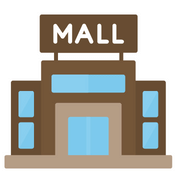 |
| 8. Discount |  |
| 9. Bargain | 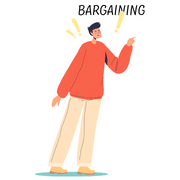 |
| 10. Receipt | 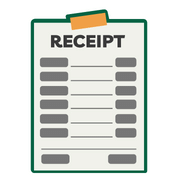 |
Clothing Words for Beginners
| 1. Shirt | 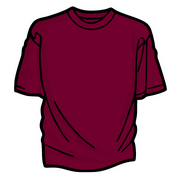 |
| 2. Dress | 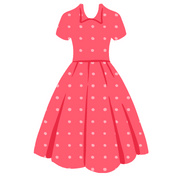 |
| 3. Jeans | 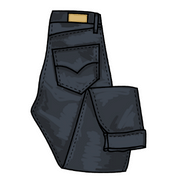 |
| 4. Shorts | 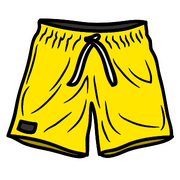 |
| 5. Hat | 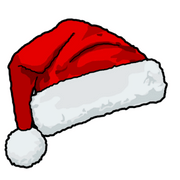 |
| 6. Jacket | 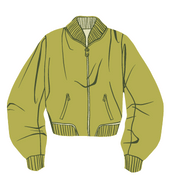 |
| 7. Shoes | 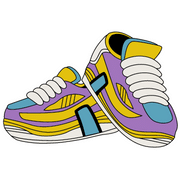 |
| 8. Scarf |  |
| 9. Socks | 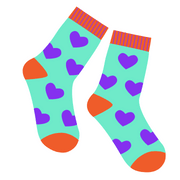 |
| 10. Gloves | 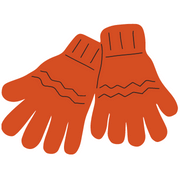 |
Sports Words for Beginners
| 1. Soccer | 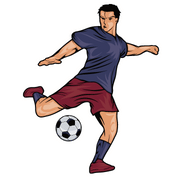 |
| 2. Baseball |  |
| 3. Basketball |  |
| 4. Volleyball |  |
| 5. Tennis | 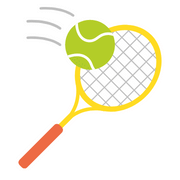 |
| 6. Swimming | 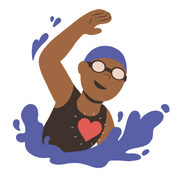 |
| 7. Running | 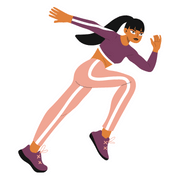 |
| 8. Skiing | 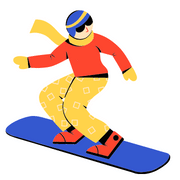 |
| 9. Golf |  |
| 10. Cycling |  |
Nature Words for Beginners
| 1. Forest | 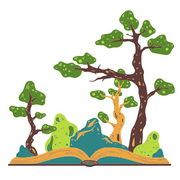 |
| 2. Tree |  |
| 3. Animal | 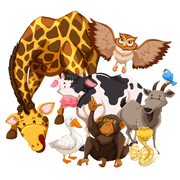 |
| 4. Sky |  |
| 5. Cloud |  |
| 6. Sun |  |
| 7. Moon |  |
| 8. Star |  |
| 9. Flower |  |
| 10. Mountain |  |
Worksheets for Beginners
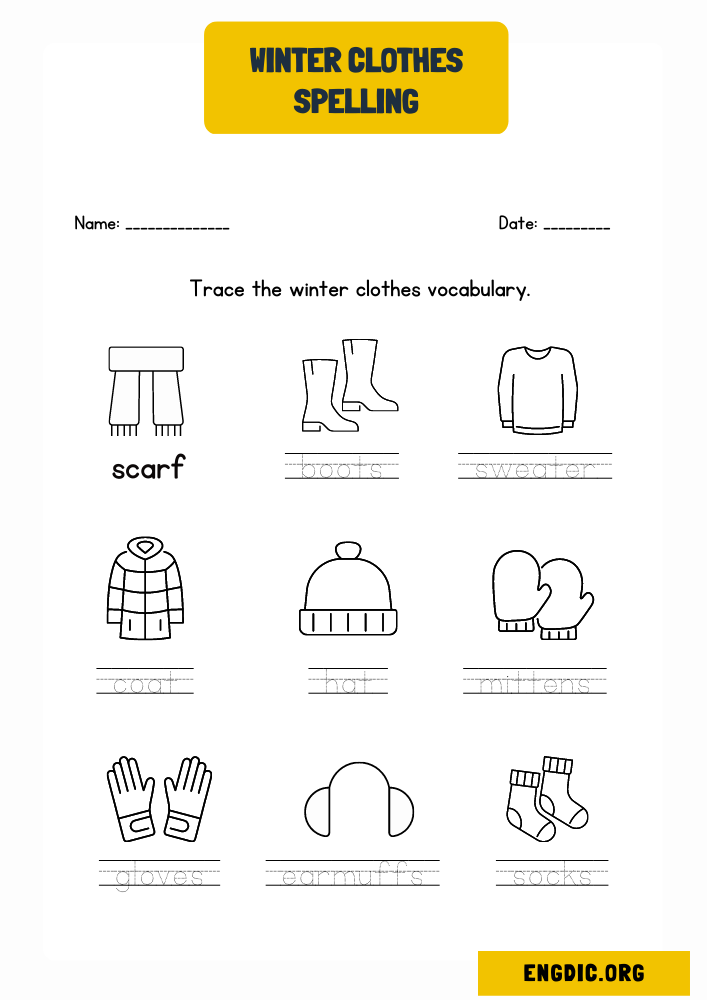

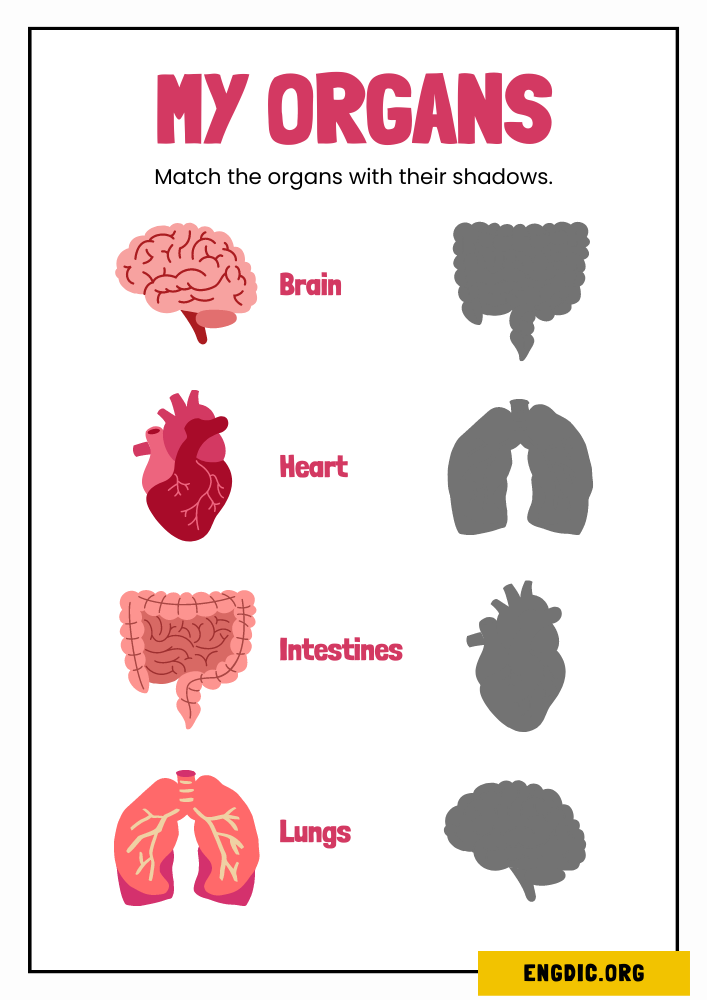
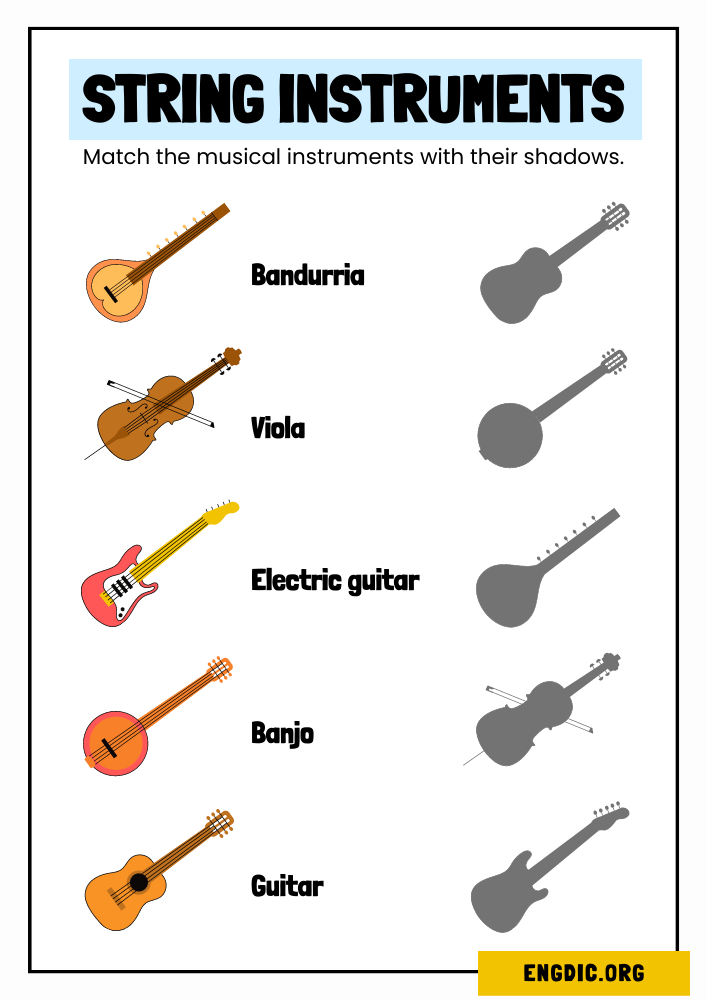
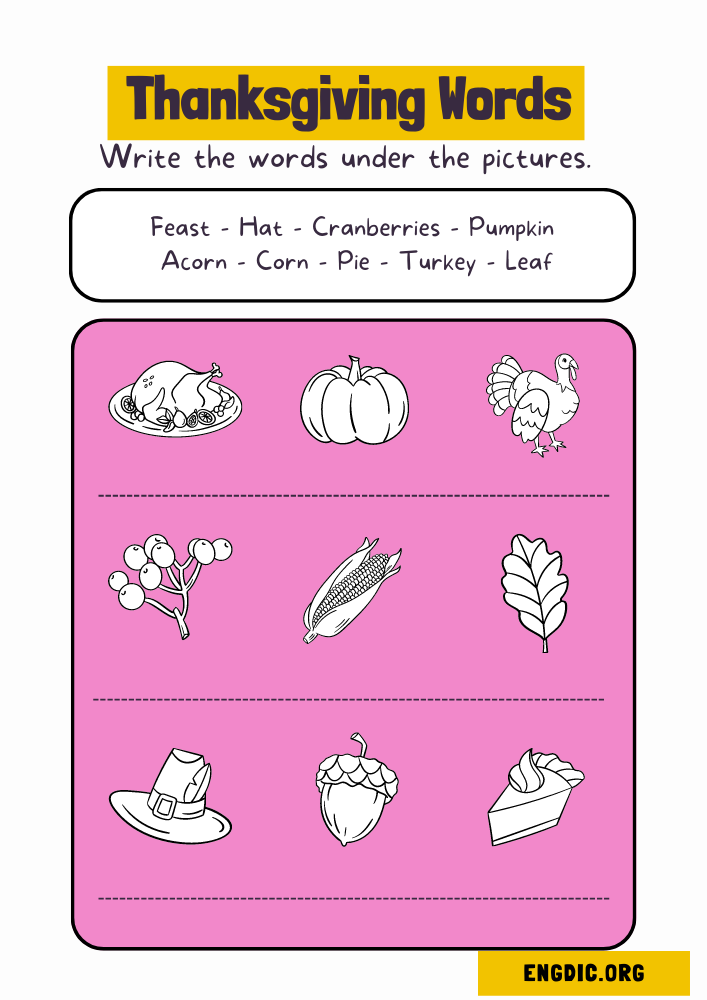
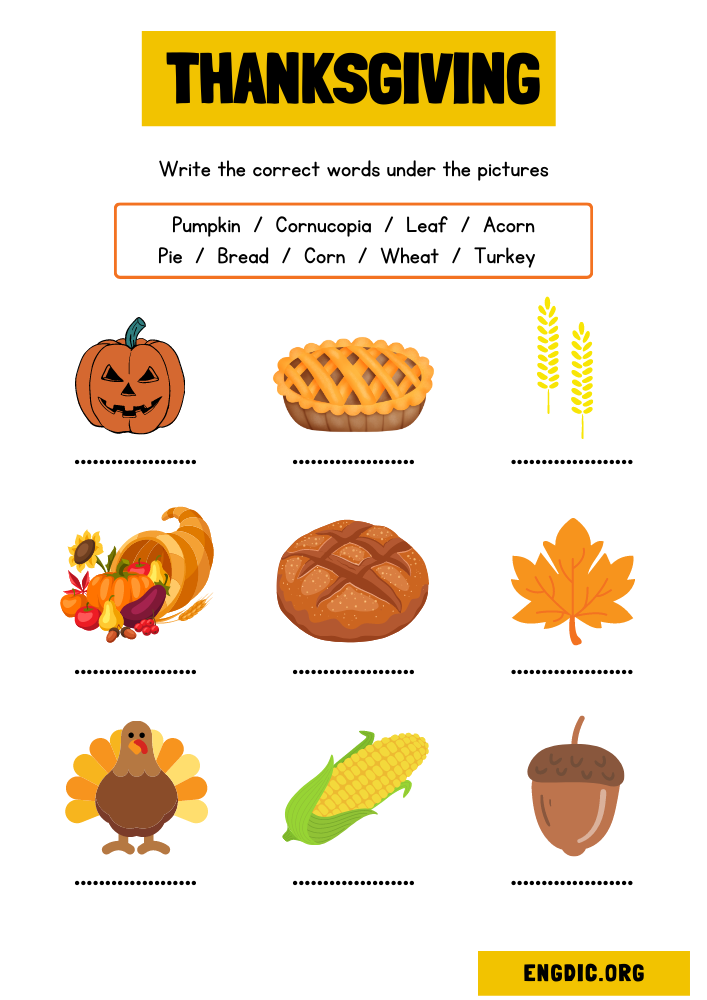
Here is a very simple, yet attractive, common noun list. I hope you can start using them soon, if you’re not already!
1. account – an arrangement with a bank to keep your money there and allow you to take it out when you need to.
2. air – the mixture of gases that surrounds the Earth and that we breathe.
3. amount – a collection or mass, especially of something that cannot be counted.
4. animal – something that lives and moves, but is not a human, bird, insect or fish.
5. answer – the receipt and response to a letter, question or phone call.
6. approval – the feeling of having a positive opinion of someone or something.
7. art – the activity of making objects, drawings, music, paintings, sculptures etc that are beautiful or that express feelings.
8. attack – to try to hurt or defeat (mainly referred to physical violence but can also be used to describe verbal or emotional outbursts).
9. attention – notice, thought or interest.
10. back – (adverb) in return, into, towards a previous place or condition, or an earlier time; (noun) the part of your body that is opposite to the front, from your shoulder to your bottom.
11. base – the bottom part of an object, on which it rests, or the lowest part of something.
12. behavior – the way that someone behaves.
13. belief – the feeling of being certain that something exists or is true, something that you believe.
14. birth – the time when a young baby, or young animal comes out of its mother’s body.
15. blood – the red liquid that is sent around the body by the heart.
16. blow – to move and make currents of air, or to make a sound by forcing air out of your mouth.
17. body – the whole physical structure that forms a person or animal.
18. bread – a food made from flour, water and usually yeast, mixed together and baked.
19. breath – the air that goes into and out of your lungs.
20. brother – a man or boy with the same parents as another person.
21. building – a structure with walls and a roof, such as a house or a factory.
22. burn – to be hurt, damaged or destroyed by fire or extreme heat, or to cause this to happen.
23. business – the activity of buying and selling goods and services.
24. butter – a pale yellow food containing a lot of fat that is made from cream, usually spread on bread or used in cooking.
25. care – the process of protecting someone or something, and providing what they need.
26. cause – the reason why something, especially something bad, happens.
27. chance – an occasion that allows something to be done.
28. change – to exchange one thing for another thing, or to make or become different.
29. cloth – a type of woven material, usually used in cleaning to remove dirt, dust or liquid.
30. color/colour – red, blue, green, yellow, red, orange etc.
31. comfort – a pleasant feeling of being relaxed and free from pain.
32. company – an organization that sells goods or services in order to make money.
33. comparison – the act of comparing two or more people or things.
34. competition – a situation in which someone is trying to win something or be more successful than someone else.
35. connection – the state of being related to someone or something.
36. cook – (verb) when you prepare food to be eaten by heating it until it is ready, or (noun) a person who prepares and cooks food.
37. country – an area of land that has its own government, army etc.
38. cover – to put or spread something over something, or to lie on the surface of something.
39. credit – praise, approval or honour.
40. cry – to produce tears as the result of a strong emotion, such as sadness, fear, happiness or pain.
41. current – of the present time.
42. damage – to harm or spoil something.
43. danger – the possibility of harm or death to someone.
44. daughter – your female child.
45. day – a period of 24 hours.
46. death – the end of life.
47. decision – a choice that you make about something after thinking about all the possible options.
48. detail – a single piece of information or fact about something.
49. development – the process in which someone or something grows or changes and becomes more advanced.
50. direction – the position towards which someone or something moves or faces.51. discovery – the process of finding information, a place or an object, especially for the first time.
52. discussion – the activity in which people talk about something and tell each other their ideas or opinions.
53. disease – an illness of people, animals or plants caused by infection or a lack of health.
54. distance – the amount of space between two places.
55. doubt – (a feeling of) not being certain about something, especially how good or true it is.
56. drink – (noun) liquid that is taken into the body through the mouth, or (verb) to take liquid into the body through the mouth.
57. driving – the ability to drive a car, the activity of driving, or the way someone drives.
58. dust – dry dirt in the form of powder that covers surfaces inside a building, or very small dry pieces of soil etc.
59. earth – our planet, the third in order from the sun, between Venus and Mars, the world on which we live. Also another term for soil on the ground.
60. education – the process of teaching or learning in a school or college, or the knowledge that you get from this.
61. effect – the result of a particular influence.
62. end – the part of a place or thing that is the furthest away from the start, or the final part of something such as a period of time, activity or story.
63. error – a mistake.
64. example – a way of helping someone to understand something by showing them how it is used.
65. experience – (the process of getting) knowledge or skill from doing, seeing or feeling things, or something that happens to you which affects how you feel.
66. expert – a person with a high level of knowledge or skill relating to a particular subject or activity.
67. fact – something that is known to have happened or to exist, especially something for which proof exists.
68. fall – to suddenly go down onto the ground or towards the ground without intending to, or by accident.
69. family – a group of people who are related to each other such as a mother, father and their children.
70. father – a male parent.
71. fear – an unpleasant emotion or thought that you have when you are worried or frightened by something dangerous, painful or bad that is happening or may happen.
72. feeling – the fact of feeling something physical, or an emotion.
73. fire – the state of burning that produces flames that send out heat and light, and might produce smoke.
74. flight – a journey in an aircraft.
75. flower – the part of a plant that is often brightly coloured and has a pleasant smell.
76. food – something that people and animals eat or plants absorb, to keep them alive.
77. friend – a person who you know well and like a lot, but who is usually not a member of your family.
78. front – the part of a person’s body, building or object that faces forward, or is most often seen or used.
79. fruit – the soft part containing seeds that is produced by a plant. Many types of fruit are sweet and can be eaten.
80. glass – a hard transparent material used to make windows bottles and other objects.
81. gold – a chemical element that is a valuable, shiny, yellow metal used to make coins and jewellery.
82. government – the group of people that officially control a country.
83. grain – a seed or seeds from a plant, especially a plant like a grass such as rice or wheat.
84. grass – a low, green plant that grows naturally from soil on the Earth’s surface.
85. growth – the growth of a person, animal or plant is its process of increasing in size.
86. guide – written information or a person that gives you the history of, or most important facts about, a particular or subject.
87. harbor/harbour – an area of water next to the coast, often protected from the sea by a thick wall, where ships and boats can shelter.
88. hate – to dislike someone or something very much.
89. hearing – the ability to hear, or an official meeting that is held to collect the facts about an event or problem.
90. heat – the quality of being hot or warm, or the temperature of something.
91. help – to make it possible or easier for someone to do something, by doing part of the work yourself.
92. history – (the study or record of) past events considered together, especially events of a particular period, country or subject.
93. hole – an empty space in an object, usually with an opening to the object’s surface, or an opening that goes completely through an object.
94. hope – to want something to happen or to be true, and usually have a good reason to think that it might.
95. hour – a period of 60 minutes.
96. ice – water that has frozen and become solid, or pieces of this.
97. idea – a suggestion or plan for doing something.
98. increase – to (make something) become larger in amount or size.
99. industry – the companies and activities involved in the process of producing goods for sale, especially in a factory or special area.
100. instrument – an object such as a guitar or drum that is played to produce musical sounds.
(adsbygoogle = window.adsbygoogle || []).push({});
101. insurance – an agreement in which you pay a company money and they pay your costs if you have an accident or injury.
102. interest – the feeling of wanting to give your attention to something or someone, or wanting to be involved with and to discover more about something.
103. iron – a chemical element that is a common greyish-coloured metal. It is strong, used in making steel, and exists in very small amounts in blood.
104. join – to connect or fasten things together.
105. journey – the act of travelling from one place to another, especially in a vehicle.
106. jump – to push yourself suddenly off the ground and into the air using your legs.
107. kick – to hit someone or something with the foot, or to move the feet and legs suddenly and violently.
108. kiss – to touch another person’s cheek or hand with your lips, especially as a greeting, or to press your mouth onto another person’s mouth in a sexual way.
109. knowledge – understanding of, or information about, a subject that you get by experience or study.
110. land – the surface of the Earth that is not covered by water.
111. language – a system of communication consisting of sounds, words and grammar.
112. laugh – to smile when making sounds with your voice that show you think something is funny or that you are happy.
113. low – not measuring much from the base to the top, close to the ground or the bottom of something.
114. lead – to control a group of people, a country or situation.
115. learning – the activity of obtaining knowledge, or knowledge obtained by study.
116. letter – a written message from one person to another, usually put in an envelope and sent by post.
117. level – the height of something, or the amount or number of something.
118. light – the brightness that comes from the sun, fire and some electrical devices, and that allows things to be seen.
119. limit – the greatest amount, number or level of something that is either possible or allowed.
120. liquid – a substance, such as water, that is not solid or a gas and that can be poured easily.
Read more:
What Happens if You Don’t Drink Enough Water Daily? [Video]
31 House Types ›› Types of houses like apartment, cottage, flat, hut, igloo …
121. look – to direct your eyes in order to see.
122. loss – the fact that you no longer have something, or have less of something.
123. love – to like another adult very much and be romantically and sexually attracted to them, or to have strong feelings of liking a friend or person in your family in a non-sexual way.
124. machine – a piece of equipment with several moving parts that uses power to do a particular type of work.
125. man – an adult male human being.
126. market – the people who might want to buy something, or a part of the world where something is sold, or the business or trade in a particular product.
127. mass – (adjective) having an effect on or involving a large number of people, or forming a large amount. (noun) a large amount of something that has no particular shape or arrangement.
128. meal – an occasion when food is eaten, or the food that is eaten on such an occasion.
129. measure – to discover the exact size or amount of something, or to be of a particular size.
130. meat – the flesh of an animal when it is used for food.
(adsbygoogle = window.adsbygoogle || []).push({});
131. meeting – an occasion when people come together intentionally, usually in a formal/business sense.
132. memory – the ability to remember information, experiences and people.
133. middle – the central point, position or part.
134. milk – the white liquid produced by cows, goats, sheep, and used by humans as a drink or for making butter and cheese.
135. mind – the part of a person that makes it possible for him or her to think, feel emotions and understand things.
136. mine – the one(s) belonging to or connected with me (the speaker).
137. minute – one of the 60 parts that an hour is divided into, consisting of 60 seconds.
138. mist – thin fog produced by very small drops of water collecting in the air just above an area of ground or water.
139. money – coins or notes that are used to buy things, or the amount of these that one person has.
140. month – a period of about 4 weeks, especially one of the 12 periods into which a year is divided.
141. morning – the part of the day from the time the sun rises or you wake up, until the middle of the day or lunch time.
142. mother – a female parent.
143. mountain – a raised part of the Earth’s surface, much larger than a hill.
144. move – to (cause to) change position.
145. music – a pattern of sounds made by musical instruments, voices or computers, intended to give pleasure to people listening to it.
146. name – the word or words that a person, thing or place is known by.
147. nation – a large aggregate of people united by common descent, history, culture or language, inhabiting a particular country or territory.
148. need – the urge to have something, or want something very much.
149. news – information or reports about recent events.
150. night – the part of every 24-hour period when it is dark, because there is very little light from the sun.
151. noise – a sound or sounds, especially when it is unwanted, unpleasant or loud.
152. number – a unit that forms part of the system of counting or calculating.
153. offer – to ask someone if they would like to have something, or they would like you to do something.
154. oil – a thick liquid that comes from petroleum, used as a fuel, and for making parts of machines move easily.
155. opinion – a thought, belief or judgement about someone or something.
156. order – a request to make, supply or deliver food or goods.
157. organization – a group of people who work together in an organized way for a shared purpose.
158. owner – someone who owns something.
159. page – a side of one of the pieces of paper in a book, magazine or newspaper.
160. pain – a feeling of physical, emotional or mental suffering.
161. paint – a coloured liquid that is put on a surface, such as a wall, to decorate it.
162. paper – thin, flat material made from crushed wood or cloth, used for writing, printing or drawing on.
163. part – some, but not all of a thing.
164. paste – a think, soft, sticky substance made by crushing or mixing things such as fish, fruit or vegetables for food, or a liquid with powder for glue.
165. payment – an amount of money paid or the process of giving money owed to another.
166. peace – free from war and violence, especially when people live and work together happily, without disagreements.
167. person – a man, woman or child.
168. place – an area, town or building.
169. plant – a living thing that grows in earth, or water, usually has a stem, leaves and roots, and produces seeds.
170. play – spending time doing an enjoyable and/or entertaining activity.
171. pleasure – enjoyment, happiness and satisfaction, or something that gives this.
172. position – the place where something or someone is, often in relation to other things.
173. power – ability to control people and events.
174. price – the amount of money for which something is sold.
175. process – a series of actions that you take in order to achieve a result.
176. produce – (verb) to make something or bring something into existence. (noun) food or any other substance that is grown or obtained through farming.
177. profit – money that is earned in trade or business, after paying any costs related to producing selling goods.
178. property – an object/objects, building or land that belong to someone.
179. pull – to move something towards yourself, sometimes with great physical effort.
180. punishment – the act of punishing someone.
181. purpose – why you do something, or why something exists.
182. push – to use physical pressure or force, especially with your hands, in order to move something into a position that is further away from you.
183. quality – how good or bad something is.
184. question – a sentence or phrase used to find out information.
185. rain – drops of water from clouds.
186. reaction – behaviour, a feeling or an action that is the direct result of something.
187. reading – the skill or activity of getting information from books.
188. reason – the cause of an event or situation, something that provides an excuse or explanation.
189. record – (verb) to store sounds or moving pictures using electronic equipment. (noun) the best or fastest ever done. (noun) a flat plastic disc on which music is recorded.
190. regret – a feeling of sadness about something sad or wrong, or about a mistake that you have made.
191. relation – the way in which two people or groups of people feel and behave towards each other.
192. religion – the belief in, and worship of, a god or gods.
193. request – the act of politely or officially asking for something.
194. respect – admiration felt or shown for someone or something that you believe has good ideas or qualities.
195. rest – to stop doing a particular activity in order to relax and regain your strength.
196. reward – something given in exchange for good behaviour or good work.
197. rice – the small seeds of a particular type of grass, cooked and eaten as food.
198. river – a natural wide flow of fresh water across the land into the sea, a lake or another river.
199. road – a long hard man-made surface built for vehicles to travel along.
200. room – a part of the inside of a building that is separated from other parts by walls, floor and ceiling.
(adsbygoogle = window.adsbygoogle || []).push({});
201. rule – a principle or instruction that states the way things are and how they should be done, and tells you what you are and aren’t allowed to do.
202. run – to move along, faster than walking, by taking quick steps.
203. salt – a common white substance found in sea water and in the ground, used especially to flavour food or to preserve it.
204. sand – a substance that consists of very small grains of rock, found on beaches and deserts.
205. sea – the salty water that covers a large surface of the Earth.
206. seat – a piece of furniture in a building or vehicle, that has been designed for someone to sit on.
207. secretary – someone who works in an office, writing letters, making phone calls and arranging meetings.
208. selection – the act of choosing someone or something.
209. sense – an ability to understand, recognize, value, or react to something, especially any of the five abilities to see, hear, smell, feel and taste.
210. shade – slight darkness caused by something blocking the direct light from the sun.
211. shake – to move or make something or someone move, backwards and forwards or up and down in short quick movements.
212. shame – an uncomfortable feeling of guilt or of being ashamed, because of your own or someone else’s bad behaviour.
213. shock – the emotional or physical reaction to a sudden unexpected and usually unpleasant event or experience.
214. side – a flat outer surface of an object, especially one that is not the top, bottom, the front nor the back.
215. sign – to write your name, usually on a written or printed document, to show that you agree with its contents.
216. silver – a chemical element that is a valuable shiny white metal, used for making cutlery, jewellery, coins or decorative objects.
217. sister – a girl or woman who has the same parents as another person.
218. size – how large or small someone or something is.
219. sky – the area above the earth, in which clouds, the sun, moon and stars can be seen.
220. sleep – the resting state in which the body is not active and the mind is unconscious.
221. slip – to slide without intending to, or to move out of the correct position.
222. smash – to cause something to break noisily into a lot of small pieces.
223. smell – to have a particular quality that others can notice with their noses.
224. smile – a happy or friendly expression on the face in which the ends of the mouth curve up slightly, often with lips parted so that teeth can be seen.
225. smoke – the mixture of gas and very small pieces of carbon that is produced when something burns.
226. sneeze – when you sneeze, air and often small drops of liquid suddenly come out of your mouth and nose in a way that you cannot control.
227. snow – the small soft, white pieces of ice that sometimes fall from the sky when it is extremely cold.
228. soap – a substance used for washing the body, that is usually hard, often has a pleasant smell and produces a mass of bubbles when rubbed with water.
229. society – a large group of people who live together in an organized way. All the people in a country, or in several similar countries, could be referred to as a society.
230. son – someone’s male child.
231. song – a usually short piece of music where words are sung.
232. sort – (noun) a group of things that are of the same type, or that share similar qualities. (verb) to put a number of things in an order, or to separate them into groups.
233. sound – something that you can hear or that can be heard.
234. soup – a usually hot liquid food made from meat, vegetables or fish.
235. space – an empty area that is available to be used. The area around everything that exists, continuing in all directions.
236. start – to begin doing something.
237. step – to move by lifting your foot, and putting it down in a different place, or to put your foot in or on something.
238. stone – a piece of the hard solid substance that is found in the ground, and that is often used for building.
239. stop – to not continue to operate, to not move anymore, or to make someone or something not move anymore.
240. story – a description either true or imagined, of a connected series of events.
241. structure – the way in which the parts of a system or object are arranged or organized, or a system arranged in this way.
242. sugar – a sweet substance especially from the plants sugar cane and sugar beet, used to make food and drinks sweet.
243. suggestion – an idea, plan or action that is suggested, or the act of suggesting it.
244. summer – the season of the year between spring and autumn when the weather is the warmest, lasting from June to September in the UK.
245. surprise – an unexpected event.
246. swim – to move through water by moving parts of your body.
247. talk – to say words aloud; to speak to someone.
248. taste – the flavour of something, or the ability of a person or animal to recognize different flavours.
249. tax – money paid to the government that is based on your income or the cost of goods or services you have bought.
250. teaching – the job of being a teacher; the role/act of educating another person in any particular subject.
251. thing – used to refer in an approximate way to an object or to avoid naming it.
252. thought – the act of thinking about or considering something, an idea or opinion, or a set of ideas about a particular subject.
253. time – the part of existence that is measured in minutes, days or years, or this process considered as a whole.
254. touch – to put your hand or another part of your body lightly onto and off something or someone.
255. trade – the activity of buying and selling or exchanging goods and/or services between people or countries.
256. transport – the movement of people or goods from one place to another.
257. trouble – problems or difficulties, or a negative characteristic of someone.
258. turn – to (cause to) move in a circle round a fixed point or line.
259. use – to put something such as a tool, skill or building to a particular purpose.
260. value – the amount of money that can be received for something.
261. view – an opinion, belief or idea, or a way of thinking about something; what someone can see in their peripheral vision.
262. voice – the sounds that are made when people speak or sing.
263. walk – to move along by putting one foot in front of the other.
264. war – armed fighting between two or more countries or groups, or a particular example of this.
265. wash – to clean something using water and usually soap.
266. waste – an unnecessary or wrong use of things such as money, substances, time, energy or abilities.
267. water – a clear liquid, without colour or taste, that falls from the sky as rain, and is necessary for animal and plant life.
268. way – a route, direction or path.
269. weather – the conditions in the air above the earth such as wind, rain or temperature, especially at a particular time or over a particular area.
270. week – a period of seven days, usually from Monday to Sunday.
271. weight – the amount that someone or something weighs.
272. wind – a current of air moving approximately horizontally, especially one strong enough to be felt.
273. wine – an alcoholic drink generally made from grapes but that can also be made from other fruits or flowers.
274. winter – the season between autumn and spring, when the weather is the coldest.
275. woman – an adult female human being.
276. wood – a hard substance that forms the branches and trunks of trees and can be used as a building material, for making things, or as a fuel.
277. word – a single unit of language that has meaning and can be spoken or written.
278. work – an activity, such as a job, that a person uses physical or mental effort to do, usually for money.
279. writing – a person’s style of writing with a pen on paper that can be recognized as their own.
280. year – a period of twelve months.
If you are already familiar with most of the above words, then you can also click on one of the links below for further suggestions:


